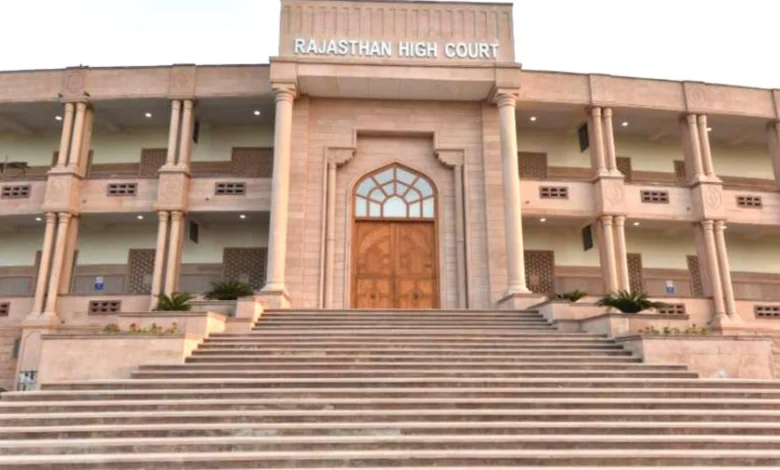Composite inquiries can only take place if employees involved share the same disciplinary authority

The Rajasthan High Court clarified that if multiple employees face disciplinary charges and share some common accusations, they can be subjected to composite disciplinary proceedings. However, this can only happen if the disciplinary authority overseeing all employees is the same.
If the disciplinary authorities for the employees are different, one authority cannot overstep its jurisdiction to handle proceedings meant for another. This was emphasized by Justice Anoop Kumar Dhand, who ruled on the matter while hearing a case involving employees of Bank of Baroda (BOB).
Background of the Case
In this case, certain Bank of Baroda employees were charged with misconduct due to their alleged involvement in the IFLC Business Development case. They argued that the disciplinary process violated the bank’s regulations, specifically Regulations 6.3 and 10 of the Bank of Baroda Officer Employees’ (Discipline and Appeal) Regulations, 1976.
- Regulation 10 states that if two or more employees face related charges, a common disciplinary proceeding may be held, but only under the authority of the competent disciplinary officer.
- Regulation 6.3 requires the disciplinary authority to provide clear charges along with a list of allegations, relevant documents, and witnesses to the employees being investigated.
Petitioners’ Arguments
The employees argued that four separate charge sheets had been issued against them despite some shared allegations, violating Regulation 10. They also claimed that they were not provided with the necessary documents as required by Regulation 6.3 when the charge sheets were issued.
State’s Response
The State countered by arguing that the regulations were not mandatory. They emphasized that:
- The employees were given opportunities to inspect the attached documents after receiving their charge sheets, and they even submitted comments based on these inspections.
- Since the employees held different job roles and were accountable to different disciplinary authorities, a single combined proceeding was not feasible.
Court’s Findings and Decision
After examining the case, the Rajasthan High Court upheld the following key points:
- Jurisdiction and Disciplinary Authority
The court analyzed the charges and determined that the disciplinary authority was not the same for all four employees.- Two employees, Abhishek Agarwal and Manish Kumar Balwani, shared a disciplinary authority under the General Manager & Zonal Head.
- The other two employees, Sonika Jain and Ranjnee Veronica Lakra, were under the disciplinary control of the Deputy General Manager (Compliance & Assurance).
- Document Inspection
On the matter of the documents, the court cited established legal precedents, affirming that the non-supply of documents would not invalidate the disciplinary proceedings as long as the employees had been given sufficient opportunities to inspect them. The court referred to similar judgments by the Supreme Court and Delhi High Court, including cases like:- Administrator, Union Territory of Dadra and Nagar Haveli v. Gulabhia M. Lad
- Balbir Chand v. Food Corporation of India Ltd.
- K.N. Gupta v. Union of India
- Onkar Singh Khosla v. Union of India
- Final Judgment
Since the petitioners had been allowed to inspect the documents, the charge sheets could not be quashed solely on the basis of the documents not being supplied. The court dismissed the petitioners’ claims and upheld the validity of the disciplinary proceedings.
Key Takeaways
This ruling emphasizes two critical aspects in disciplinary proceedings:
- Composite enquiries can only take place if the employees involved share the same disciplinary authority.
- The non-supply of documents does not invalidate proceedings if the employees have been allowed to inspect those documents.
